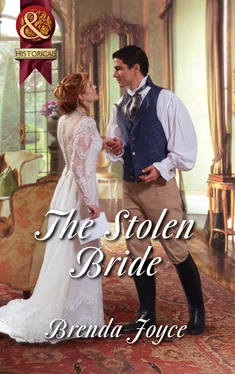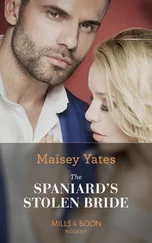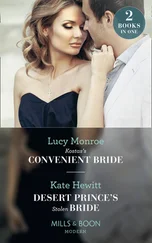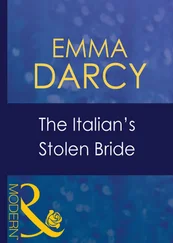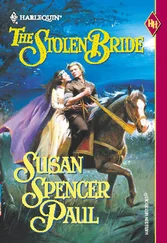He leaned his head against the wall. In truth, he no longer knew who or what he was. Maybe he had genuinely become this creature of the night, a man who would kill without provocation, John Collins.
Despair suddenly clawed at him, but he had enough talons in his flesh and he shoved it savagely aside.
“Hey, boyo, beg yer pardon,” the very drunken man said, glancing at him.
He had stolen the dagger from the warden when he had taken him hostage. Sean now hid the weapon, having flipped it deftly so that the blade faced up his arm, against his shirtsleeve, the worn handle hidden in his hand. He knew he needed to smile—it was the polite thing to do, the way a gentleman would behave—but he could not perform the task. Suddenly, he desperately wanted to manage the act. He ordered his facial muscles to do so, but they were so ill-used that a brief attempt produced no change in his expression. Sean gave up, staring at the unwanted interloper.
The man’s eyes widened with fear. He hurried away.
Sean stood very still, his breathing hard, the ugly sounds of the drunken crowd still surging over him and through him, waves of disturbing sound pounding inside his head. Maybe it would be better once he was on a ship, once he was put to sea.
He pushed through the crowd, carefully avoiding all physical contact. He had glimpsed a small corner table far in the back, in the shadows, against a wall, and he made his way to it. When he reached it, he felt safer, relieved. Two crooked chairs were there, but neither satisfied him. With his foot, he shoved one chair against the wall and only then did he sit. His back was protected, and he could see the entire public room and everyone inside it.
He gazed out at the thirty or forty men present, all drinking, laughing, speaking, some playing at die or cards, and he once again felt like an outcast. These men were Irishmen, just as he was. Once, he had been prepared to give his life defending them against tyranny and injustice, and he almost had. Now he felt no kinship with them. Except for confusion and surprise, he felt nothing at all.
It was then that he saw the man in the fine blue wool jacket approaching, a wildflower in his lapel, a small satchel in hand. Because he feared a trap, Sean carefully let the dagger reverse itself in his hand, and he laid it on his thigh, beneath the table.
The gentleman saw him and paused before the table. “Collins?”
Sean nodded, responding to his alias. Then he gestured at a chair.
The man sat. “I was given your description,” he said. “Unfortunately, you look exactly as a dangerous escaped felon might.” He was grim.
Sean ignored the remark. The man was tall, with tawny hair. His jacket was well made, his trousers tan, a fine wool. He noticed his waxed shoes. This man was clearly from a privileged background. The odds were that this was the gentleman Connelly had described, someone named Rory McBane.
It took him a moment to speak. It seemed easier than it had been that morning. “Are you…alone?”
“I haven’t been followed,” McBane said, studying him as warily. “I was very careful. And you?” He leaned closer, as if he hadn’t been able to clearly hear Sean when he had spoken.
Sean shook his head. The man continued to stare, far too closely, as if trying to decide whom he was aiding and abetting now. Perhaps McBane knew he was wanted for murder—perhaps he knew he was a murderer—perhaps he was afraid.
“Everything you need is in the satchel.” McBane broke the tense silence. With his boot, he moved the satchel toward Sean. “There’s some coin and a change of clothes. Passage has been booked to Hampton, Virginia, on an American merchantman, the U.S. Hero . She sails the day after tomorrow on the first tide.”
He would soon be free. In a matter of days, he would be sailing across the ocean, away from the British, away from Ireland, the land where he had been born, the land where he had spent most of his life. He knew he must thank McBane, but instead, his heart stirred unpleasantly, as if trying to tell him something.
Whatever it was, he didn’t want to hear. In a few days, he would no longer be hunted. Soon, he would be able to look at the sun, hopefully without using his hand as a shield, and he would never have to hide in the dark again. He would never be surrounded by cold stone walls and a barred iron door. He would never sleep on ragged stone floors with only the rags on his body for warmth, for comfort. He would never have to eat water laced with potato skins and bread crawling with maggots. He was going to America and he would be free. They would not find him there.
He should be elated or relieved, but he was neither of those things.
Crystal tinkled. Perfume wafted. Soft conversation sounded. And amber eyes, bright with laughter, held his .
Sean stiffened, shocked that his mind would suddenly do this to him. He felt ill, almost seasick. Maybe he was losing his mind, once and for all. He simply could not go to where his mind wanted to take him. There was no returning to that other lifetime! Panic claimed him.
“You need a good razor,” McBane said, cutting into his thoughts, the interruption a welcome one. “I saw a Wanted poster. You look too much like it. You need to get rid of that beard.”
Sean just stared. He had used Connelly’s blade but it hadn’t been of a good quality. McBane was right. He needed a real razor, a brush, well-milled soap.
And his mind had become intent on mayhem.
Silver eyes, bright and pleasant, stared back at him from a looking glass. A handsome, dark-haired man was reflected there, shaving in the morning. In that reflection, velvet draperies were parted. Outside, the sky was brilliantly blue and the overgrown lawns were fantastically green. The ruins of a tower were just visible from the window. So was the sea.
Sean! Are you going to dally or are we riding to the Rock?
“Are you all right?” McBane asked.
Sean tensed. He could not understand the question. What was happening to him? He could not think about the ancient past. When he married Peg Boyle, hoping to one day love her and determined to be a father to her child, as well as to the child she carried, he had made his decision. The only woman he had to remember was Peg. Now, he deliberately recalled her lying in his arms, battered and beaten and bleeding to death.
“Look, Collins, I understand you have been through hell. We are on the same side. I’m an Irishman, just like you. I heard it whispered that you’re noble by birth, which gives us a common bond. You don’t look well. Can I be of some help somehow?” McBane seemed perplexed but he was also concerned.
Sean could not find any relief in the present now. He found his voice but made no attempt to raise it. “Why…are you doing this?” He had to know why a gentleman would risk his life for him.
McBane started. “I told you. We are countrymen, and I am a patriot. You fought for freedom one way. I fight for it another way—usually with my pen—but sometimes I aid men like you.”
Sean forced his teeth to bare, trying to smile, but McBane flinched. “Thank you,” he heard himself say roughly.
“Is there anything else that you need?” McBane asked.
Sean shook his head. All he needed was to sail far away to a different land, a different life. Once he did that, maybe his mind would stop trying to torture him with glimpses of a life he was afraid to recall.
McBane leaned across the table. “Lie low then, until the Hero departs. I am leaving Cork tonight, but I can be reached at Adare. It’s only a half day’s ride from here and our mutual friends can get word to me there.”
Читать дальше
